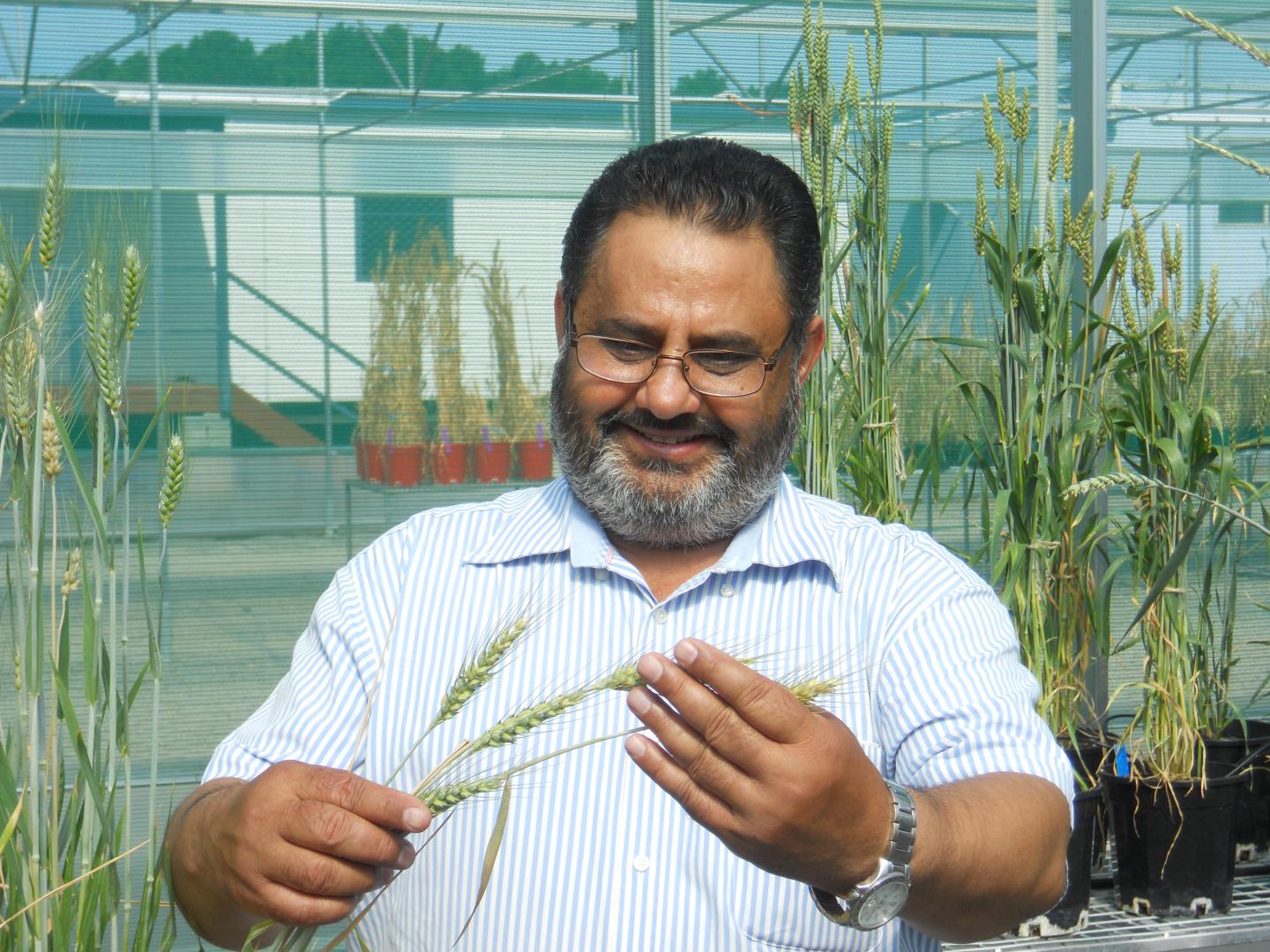Method allows cheap and fast transfer of disease-resistance genes

Credit: University of Sydney
A global alliance of researchers has pioneered a new method to rapidly recruit disease-resistance genes from wild plants for transfer into domestic crops. The technique promises to revolutionise the development of disease-resistant varieties for the global food supply.
The technique called AgRenSeq was developed by scientists at the John Innes Centre in Britain working with colleagues in Australia and the US. It was published today in Nature Biotechnology.
The result speeds up the fight against pathogens that threaten global food crops, including wheat, soyabean, maize, rice and potato, which form the vast bulk of cereals in the human diet.
Professor Harbans Bariana from the Sydney Institute of Agriculture and the School of Life and Environmental Sciences is a global expert in cereal rust genetics and a co-author of the paper.
He said: “This technology will underpin fast-tracked discovery and characterization of new sources of disease resistance in plants.”
The current research builds on previous collaborative work done by Professor Bariana with the CSIRO and John Innes Centre. It used two wheat genes cloned by this international team as controls and Professor Bariana conducted the phenotype assessments for the study.
AgRenSeq lets researchers search a library of resistance genes discovered in wild relatives of modern crops so they can rapidly identify sequences associated with disease fighting capability.
From there researchers can use laboratory techniques to clone the genes and introduce them into elite varieties of domestic crops to protect them against pathogens and pests such as rusts, powdery mildew and Hessian fly.
Dr Brande Wulff, a crop genetics project leader at the John Innes Centre and a lead author of the study, said: “We have found a way to scan the genome of a wild relative of a crop plant and pick out the resistance genes we need: and we can do it in record time. This used to be a process that took 10 or 15 years and was like searching for a needle in a haystack.
“We have perfected the method so that we can clone these genes in a matter of months and for just thousands of dollars instead of millions.”
The research reveals that AgRenSeq has been successfully trialled in a wild relative of wheat – with researchers identifying and cloning four resistance genes for the devastating stem rust pathogen in the space of months. This process would easily take a decade using conventional means.
The work in wild wheat is being used as a proof of concept, preparing the way for the method to be utilised in protecting many crops which have wild relatives including, soyabean, pea, cotton, maize, potato, wheat, barley, rice, banana and cocoa.
Modern elite crops have, in the search for higher yields and other desirable agronomic traits, lost a lot of genetic diversity especially for disease resistance.
Reintroducing disease resistance genes from wild relatives is an economic and environmentally sustainable approach to breeding more resilient crops. However, introgression of these genes into crops is a laborious process using traditional breeding methods.
The new method combines high-throughput DNA sequencing with state-of-the-art bioinformatics.
“What we have now is a library of disease resistance genes and we have developed an algorithm that enables researchers to quickly scan that library and find functional resistance genes,” said Dr Sanu Arora, the first author of the paper from the John Innes Centre.
Dr Wulff said: “This is the culmination of a dream, the result of many year’s work. Our results demonstrate that AgRenSeq is a robust protocol for rapidly discovering resistance genes from a genetically diverse panel of a wild crop relative,” he said.
“If we have an epidemic, we can go to our library and inoculate that pathogen across our diversity panel and pick out the resistance genes. Using speed cloning and speed breeding we could deliver resistance genes into elite varieties within a couple of years, like a phoenix rising from the ashes.”
###
Media Contact
Marcus Strom
[email protected]
61-423-982-485
Related Journal Article
http://dx.




